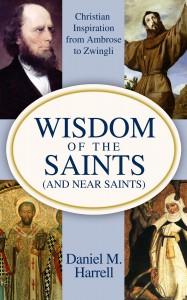Today’s guest post comes from Eric Fulton, one of an excellent class of students from Bethel Seminary who recently studied the intersection between theology and science.
Science and theology are seemingly at odds with each other on many complex questions. While admittedly a person of faith in God, I have recently seen how science and theology do not have to fight each other, but rather can work together to find the whole picture of truth. There are many complex questions in life and the use of both science and theology, I find, is the best way to find some of these answers. I am not saying that science will fully understand theology, nor that theology would fully understand science. Rather certain questions are in need of theology and science to be used in harmony.
If science is the practice of finding truth through knowledge and theology assumes that all truth comes from God, we can safely say theology and science are both looking toward finding the absolute truth. Showing that science can help theology is an easier endeavor than the reverse, for this reason I am not going to spend a lot of time on the former. The Bible does not always give the details as to how certain events took place (such as the creation story). It was not created to be a science textbook and possibly leaves out many of those scientific details to get to the theological implications. Science can give theologians possibilities as to how God possibly performed some of his miraculous acts.
Conversely, theology can help science with the implication and moral questions science may not be able to account for. Topics such as medical ethics, climate change, gene multiplication, and many others have moral implications that need to be considered through the lenses of, not only science, but also theology. Theology can provide hope and purpose to many of science’s amazing discoveries all the while giving parameters to the ethical questions modern science creates. Another great way theology can help science is through its methods of hermeneutics. While science finds and repeatedly proves (or tries to disprove) answers, understanding what the answer truly means and how it should be used is a whole other issue. A great illustration for this point is Calvin DeWitt’s science –Science-Ethics-Praxis. In this model we see how both the implications and moral issues of whatever subject one is trying to find truth for must be used. If a person were to remove either the praxis or ethics portion of this model, the answer for science (how the world works) would not be complete.
Science and theology do not have to be against each other, rather they should be used together to find the more complete understanding to life and of the world. As Pope John Paul II once said, “Science can purify religion from error and superstition; religion can purify science from idolatry and false absolutes. Each can draw the other into a wider world, a world in which both can flourish.”











